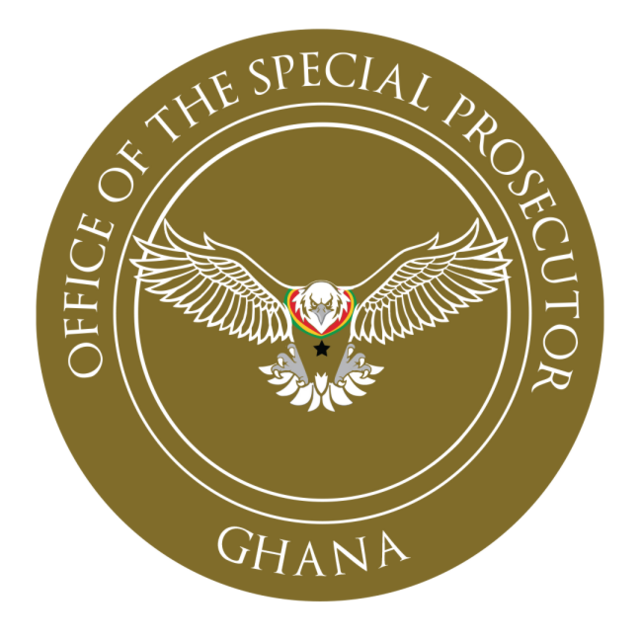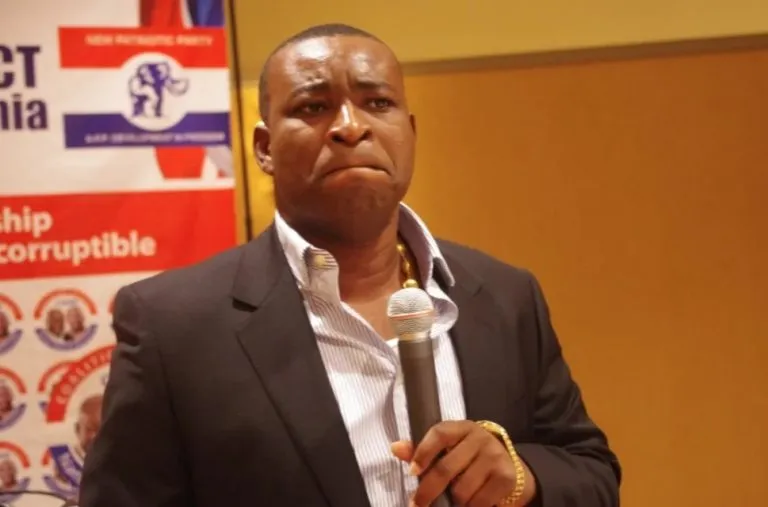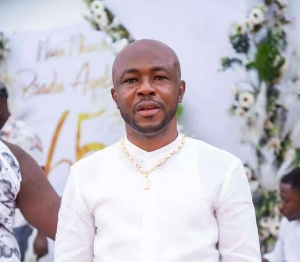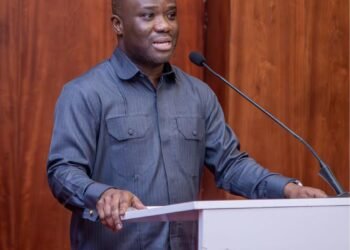Thomas Andy Owusu, aide to New Patriotic Party (NPP) Ashanti Regional Chairman Bernard Antwi-Boasiako – popularly known as Chairman Wontumi – has been convicted by the High Court in Accra in a case linked to corruption and illegal mining licence facilitation.
The conviction, entered on 4 June 2025, follows a plea agreement between Owusu and the Office of the Special Prosecutor (OSP), marking a major development in the Republic v. Charles Bissue & Another case.
“Owusu was convicted on his own plea after the Court accepted a plea agreement entered under section 71 of the Office of the Special Prosecutor Act, 2017 (Act 959)”
OSP
He had been charged with Corruption of a Public Officer and Accepting Bribe to Influence a Public Officer.
The charges stem from the findings of the 2019 investigative piece “Galamsey Fraud Part One” by Tiger Eye PI, which implicated Owusu and then-presidential staffer Charles Bissue in allegedly receiving payments to expedite the issuance of mining licences, thereby circumventing official protocols.

The exposé alleged that the accused parties acted in exchange for monetary inducements to manipulate regulatory processes tied to Ghana’s small-scale mining sector.
The terms of the plea agreement require Owusu to pay “a fine of 500 penalty units,” equivalent to GHS 6,000, and “restitution of GHS 200,000 to the state.” The penalty reflects the GHS 15,000 he allegedly received as a bribe to influence a public officer into sidestepping lawful licensing procedures.
Following the successful plea, the High Court struck out the remaining two charges originally filed against Owusu – namely, Corruption of a Public Officer and Accepting Bribe to Influence a Public Officer – as the conviction on his own plea rendered them redundant.
This development narrows the prosecution’s focus to the remaining accused person, Charles Bissue.
Bissue is facing a charge of Using Public Office for Profit, contrary to section 179C(b) of the Criminal Offences Act, 1960 (Act 29). He has denied the charges and remains the primary respondent in the ongoing proceedings.
His trial is expected to continue on 10 June 2025 with a Case Management Conference, a procedural step designed to determine timelines and manage trial expectations.
With the plea and sentencing now complete, the Special Prosecutor is anticipated to consolidate its evidence against Bissue, who served as secretary to the Inter-Ministerial Committee on Illegal Mining at the time of the alleged infractions.

The prosecution’s ability to secure a conviction via plea agreement has been viewed as a demonstration of the OSP’s evolving strategy under Ghana’s current anti-corruption regime.
Legal observers have noted that the plea agreement could serve both as precedent and a tactical pathway for the OSP in handling future high-profile corruption cases. Analysts suggest that obtaining convictions without lengthy trials may help reduce prosecutorial backlogs and channel limited legal resources toward more complex or contested matters.
The Office of the Special Prosecutor’s approach in the Owusu case may influence subsequent strategies in ongoing prosecutions, including the continuation of the broader investigations initiated by the Tiger Eye PI documentary.
While Bissue’s defence team has yet to publicly comment on the implications of Owusu’s guilty plea, the pressure is expected to mount as the proceedings resume.
The successful conviction comes at a time when the OSP is seeking to restore public confidence in the fight against galamsey and corruption in the mining sector.
With illicit mining continuing to pose environmental and governance challenges in Ghana, the outcome of this case is expected to influence policy direction and law enforcement intensity under the current administration.
READ MORE: Ghana’s Inflation Drops Sharply to 18.4% in May 2025




















